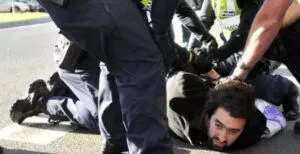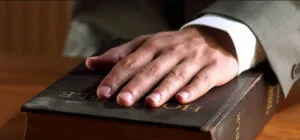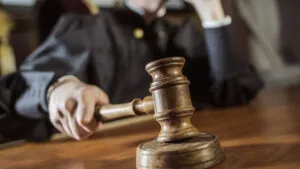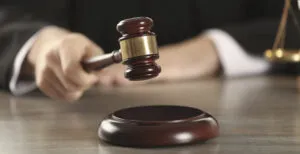California Crimes Against Justice Attorney
To Lessen The Impact of Your Criminal Charge, Hire A Crimes Against Justice Lawyer With A Solid Track Record
If you are criminally charged in California, then it is time to speak to a criminal defense attorney at My Rights Law, who has a track record of success in handling crimes against justice cases like yours. We will clarify your legal options and work tirelessly to defend you. Protect your rights by calling My Rights Law at (888) 702-8845 or leaving us a message on our secure contact form to set up a free consultation.
The criminal justice system only runs smoothly if criminal suspects cooperate. Unfortunately, many defendants end up breaking the law by committing a crime against the justice system. They might resist arrest or try to evade the police. Or they may fail to appear in court after being released on bail. Defendants on parole can also violate a condition of their release, which might require them to go back behind bars.
If you are suspected of any of these violations, please contact our California criminal defense lawyers. My Rights Law understands the importance of fighting all criminal charges, even misdemeanor offenses. Prosecutors often add charges for crimes against justice on top of other offenses. You need a seasoned legal advocate to help dig you out from the avalanche of criminal charges.
Parole Violation
Parolees must agree to abide by certain conditions of their parole and avoid committing new crimes while out of jail. If you violate any condition or break another law, the state can revoke your parole. That means you will likely end up back behind bars. Helpfully, defendants have a right to a revocation hearing and the ability to confront witnesses and present evidence. If your parole is revoked, you can end up back in jail for at least a year.[1] If you committed another crime while on parole, you might also face additional criminal charges and longer prison sentences. Contact a California criminal defense attorney today to fight any revocation.
Resisting Arrest: PC 148
You cannot willfully resist, obstruct, or delay a peace officer or emergency medical technician performing official duties. Under Penal Code 148 PC, you can face misdemeanor charges with a year in county jail and a $1,000 fine for a conviction.[2] The law doesn’t require that you hurt an officer or assault them. Instead, it is enough for a criminal conviction to delay or impede the performance of their official duties. We have seen prosecutors throw resisting arrest charges on defendants for no other purpose than their brief struggle or foot chase.
Evading Arrest: Vehicle Code 2800.1 & 2800.2
When a police officer tries to pull you over, California law requires that you stop. Vehicle Code 2800.1 criminalizes any attempt to willfully evade the police chasing you in a motor vehicle.[3] The law has technical requirements that the officer must have sirens on and at least one red light on and visible. This is a misdemeanor offense with maximum penalties of one year in jail and a $1,000 fine.
However, if you drove recklessly to evade police, you can face reckless evading charges under California Vehicle Code 2800.2.[4] This offense can be charged as either a misdemeanor or felony. You face up to three years in prison for a felony charge if convicted.
Arrest Warrants
Judges issue arrest warrants when a law enforcement agency wants to arrest someone suspected of a crime. These warrants must be backed up by probable cause and contain other requirements, such as your name and the date it was issued. California criminal law limits when police officers can arrest someone for a misdemeanor or felony, but thousands of people are arrested every week. If you have an arrest warrant, you should immediately meet with an attorney. It might be possible to get the warrant withdrawn or to turn yourself in and avoid the embarrassment of being cuffed in front of colleagues or family.
Failure to Appear: 1320 PC & 1320.5 PC
Criminal defendants must appear in court for arraignment, trials, and sentencing. If they skip out and don’t show up, a judge can issue a bench warrant for their arrest. California has two Failure to Appear statutes that you can find in California Penal Code 1320 and 1320.5.[5] These statutes make it a crime to willfully fail to appear in court when required after being released on your own recognizance or bail.
Your punishment depends on the crime for which you are requested to appear in court. If it’s a misdemeanor, your failure to appear is also a misdemeanor offense. You can face up to 6 months in county jail and fines. However, if you have failed to appear for a felony, you have committed another felony. In that case, you are facing 1-3 years behind bars as well as fines. Contact a California criminal defense attorney right away to protect your freedom.
Contempt of Court: PC 166
Contempt of court can be committed either “directly” or “indirectly.”
Direct contempt occurs in the presence of the court. A person could commit direct contempt, for instance, by yelling at the judge in a manner that interferes with the court’s ability to function and demonstrates disrespect for the court.
Indirect contempt occurs in the absence of the court. Examples of indirect contempt of court include inappropriate communication with jurors outside of court, refusing to turn over subpoenaed evidence, and refusal to pay court-ordered child support.
California Criminal Defense Attorneys
The defense attorney you choose can make the difference between having criminal charges dismissed or being severely punished. My Rights Law’s strong team of criminal lawyers have the resources and experience that enable us to pursue difficult cases yielding favorable results. We protect our clients through our expertise in the law and extensive experience in handling all misdemeanor and felony criminal cases including, but not limited to, alcohol-related crimes, drug crimes, violent crimes, domestic violence, sex crimes, crimes against children, theft crimes, juvenile crime, gun charges, property crimes, cybercrimes, traffic violations, public safety crimes, federal crimes, financial crimes, crimes against the government, crimes against justice, and inchoate crimes. We also specialize in restraining orders, pretrial diversion programs, and expungements.
Crimes against justice can create a snowball effect where you face more time in jail and more strikes on your record. Don’t let this happen to you. Anyone can make a mistake, especially when their adrenaline is pumping. But no one should end up in jail for a year or more because they failed to surrender to the authorities immediately.
You should quickly access the services of a seasoned California criminal defense attorney to fight off these charges. Contact a My Rights Law crimes against justice lawyer to learn more by calling (888) 702-8845 or sending us a message. We will describe your options in a confidential consultation.
FOOTNOTES
[1] California Penal Code 3057.
[2] California PC 148.
[3] California Vehicle Code 2800.1 VC.
[4] California VC 2800.2.
[5] California Penal Codes 1320 (released on own recognizance) and 1320.5 (released on bail).














